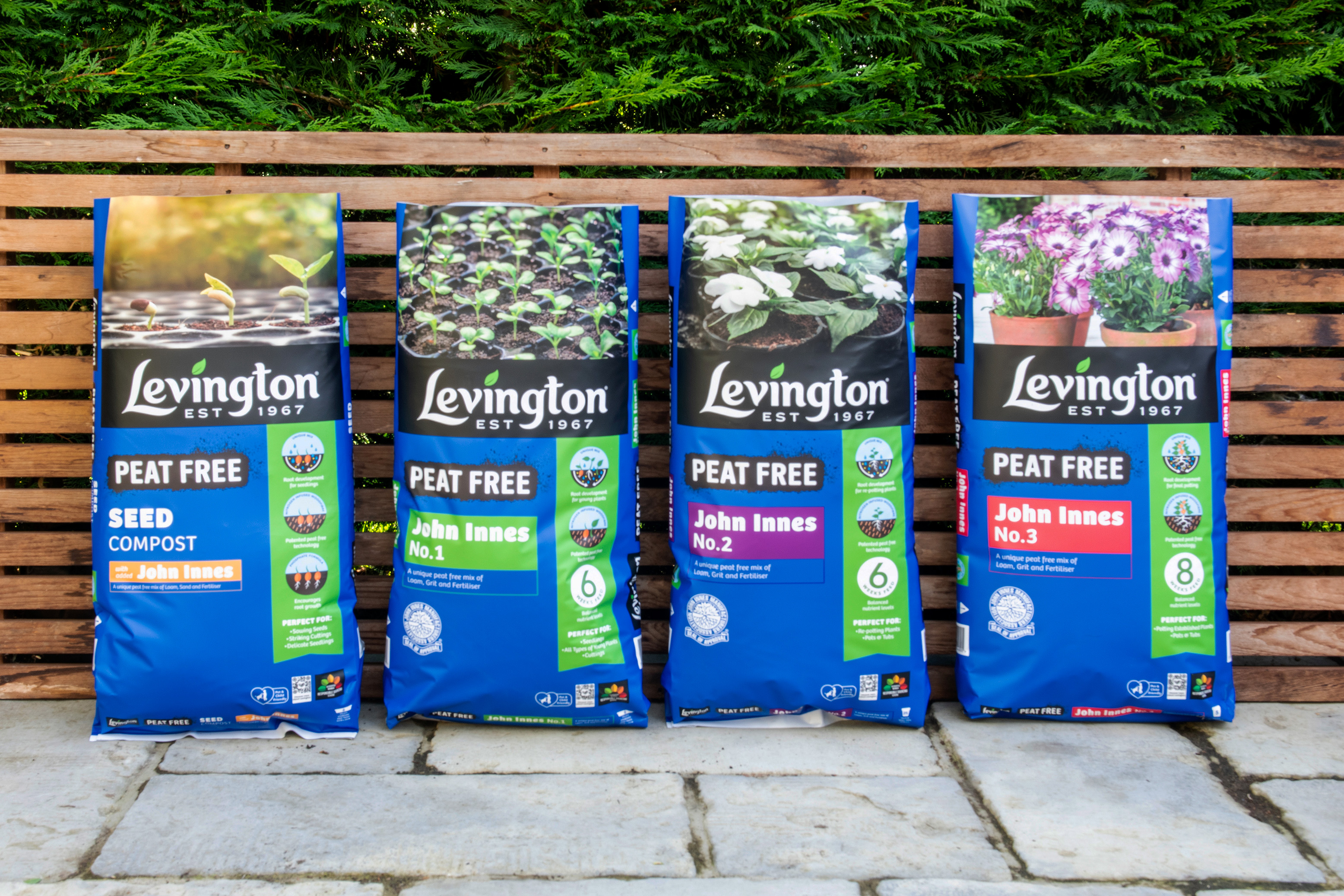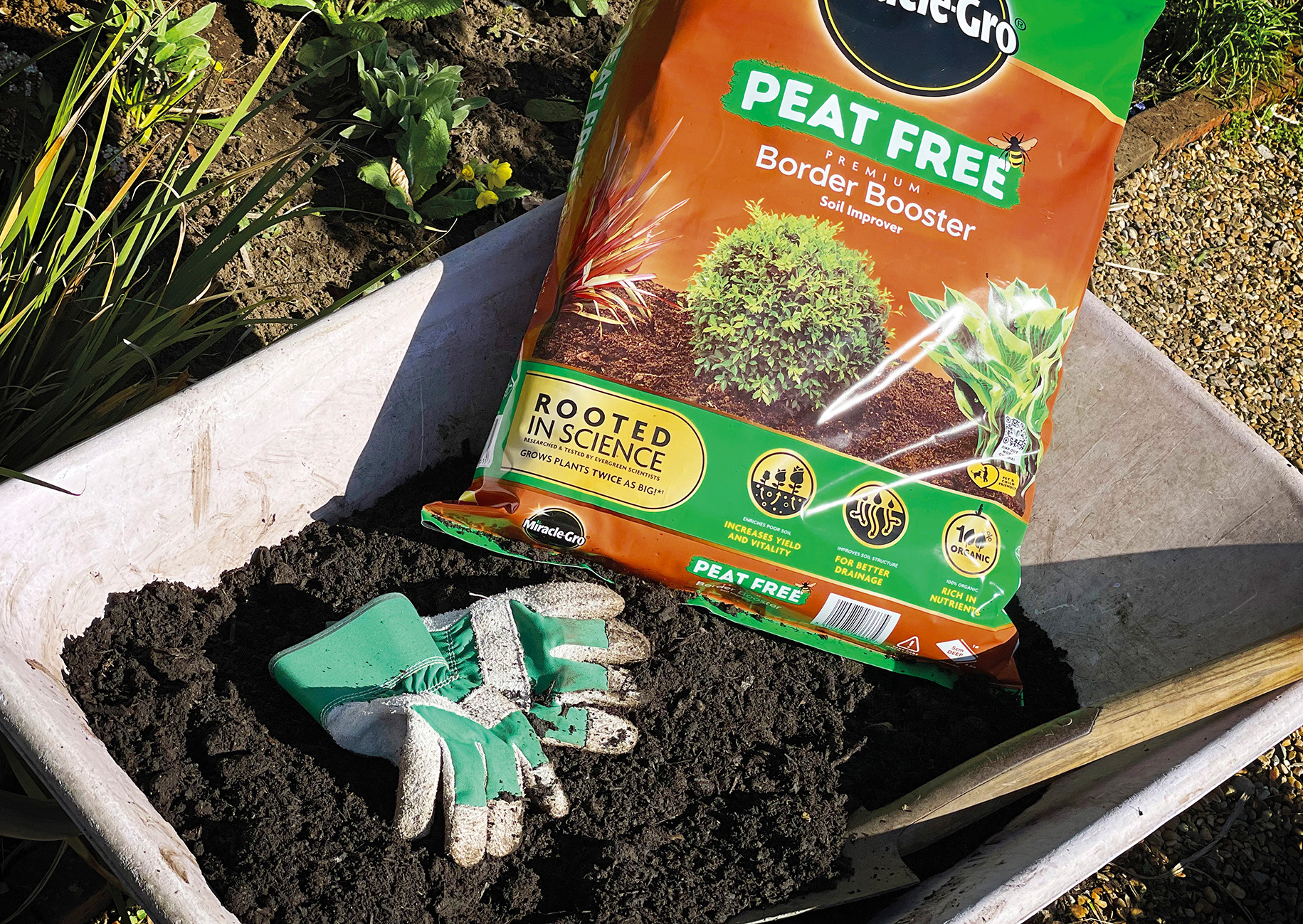-
Compost is a nutrient-rich mixture created through the decomposition of organic materials over time. On a homemade level, garden compost is typically a blend of green and brown materials that have undergone decomposition in a composting facility.
Green materials, rich in nitrogen, include:
- Grass
- Plant stems, leaves, and flowers
- Food waste such as potato peelings, banana skins, and apple cores
Brown materials, containing carbon, include:
- Cardboard and paper
- Woody stems
- Dried leaves
These materials are combined and allowed to decompose over several months, resulting in a nutrient-rich humus ideal for garden use. Quality compost enhances soil texture, fertility, and overall health by enriching it with essential nutrients and beneficial bacteria.
Types of compost can be categorized into two main groups:
-
Bagged Compost:
- Bagged compost available for purchase from garden centers, DIY shops, or supermarkets is produced using a faster process with different ingredients. It is ready for immediate use, with varying formulas tailored to different plant needs. Bagged compost may also be weed and disease-free and contain varying nutrient levels.
- Ideal for use in pots, containers, seed trays, hanging baskets, and raised beds.
-
Homemade Compost:
- Homemade garden compost is best used as a mulch in beds and borders to improve soil structure and health. It is not recommended for use in containers due to potential disease and pest issues, incorrect nutrient levels, and faster drying out.
Different types of compost available for purchase include:
- Peat-Free All-Purpose (or Multi-Purpose) Compost: Suitable for various gardening applications, including beds, borders, pots, and containers. It may contain mineral-based plant foods with varying release times and water-absorbing properties.
- Organic Compost: Contains organic plant food for slow-release nutrient provision.
- Ericaceous Compost: Specifically formulated for plants requiring acidic soil conditions, such as Rhododendrons, Camellias, and blueberries.
- Loam and Soil-Based Composts (John Innes Range): Incorporate green compost, expanded wood fiber, fertilizer, topsoil or loam, and sand or grit to improve aeration and drainage around plant roots. Available in various formulations suitable for different stages of plant growth, including seedlings, larger plants, and mature plants.
The John Innes range includes:
- Seed and Cutting Compost with added John Innes
- John Innes No. 1: For seedlings
- John Innes No. 2: For larger plants
- John Innes No. 3: For mature plants in their final positions.

Gro bags and planters are excellent solutions for gardeners with limited space or those seeking convenient growing options. They require minimal space and can be placed virtually anywhere. These containers accommodate a variety of fruits, vegetables, and herbs, with tomatoes, aubergines, peppers, and strawberries being particularly well-suited. Gro bags and planters often contain a pre-mixed plant food that provides nutrients for approximately 8 weeks. After this period, regular feeding with a liquid plant food is necessary.
In addition to standard compost types, there are specialized composts tailored to the specific needs of certain plants, including roses, trees, shrubs, houseplants, orchids, cacti, succulents, bonsai, Mediterranean plants, and citrus plants. These dedicated composts provide the essential nutrients required for optimal plant growth and health.
Choosing the right compost for your plants depends on their stage of development:
-
Seeds and Seedlings:
- Opt for a fine compost designed to promote delicate root exploration. Composts containing sand are ideal for seeds and young plants as they provide a lighter structure that prevents root restriction.
-
Established Plants:
- As plants mature, they require larger pots to accommodate their growing root systems. Repotting into slightly larger containers allows for continued root expansion and robust above-ground growth.
- Ensure proper nutrient supply to support healthy growth, especially for plants confined to pots and containers, as they may deplete soil resources more rapidly. Consider using composts formulated for pots and baskets, such as Miracle-Gro's Premium Peat-Free Moisture Control Compost.
Soil Improvement:
- Soil conditioners, while not technically compost, can enhance garden soil by improving aeration, drainage, and nutrient retention. They are beneficial for heavy clay or sandy soils and help promote healthy foliage, flowers, and root growth.
- Soil conditioners can also serve as mulch, suppressing weeds and retaining moisture when applied in a thick layer to moist borders and beds.

The Dos of Composting:
- Do choose a specialist compost appropriate for your gardening needs to ensure optimal growing conditions.
- Do check your garden soil's pH balance before planting to determine if it's acidic, neutral, or alkaline, which helps in selecting suitable plants.
- Do incorporate leftover compost into your garden soil as a soil improver.
- Do use fresh compost annually when potting up plants to minimize the risk of pests and diseases and to replenish nutrients.
- After planting, do water your plants to remove air pockets and ensure proper root-soil contact.
- Do wear gloves when handling compost.
The Don'ts of Composting:
- Don't sow seeds in standard all-purpose compost; instead, use specialist seed compost for optimal root growth.
- Don't be deterred from growing fruits and vegetables due to limited space; utilize pots, hanging baskets, and grow bags for healthy crops.
- Don't forget to use ericaceous compost for acid-loving plants like azaleas, camellias, and rhododendrons.
- Don't use garden soil for potting containers and baskets.
- Don't forget to follow compost label instructions.
Frequently Asked Questions about Compost:
-
How do you know if compost is good quality?
- Shop-bought compost from reputable brands like Miracle-Gro or Levington ensures consistent quality. Homemade compost should be rich, dark brown, dry, and crumbly, with no unpleasant odors.
-
What is the best compost for beginners?
- For patio pots, hanging baskets, herbs, or flowering bedding plants, a peat-free all-purpose compost is recommended. For houseplants, use peat-free houseplant compost.
-
Which compost is best for all plants?
- A good peat-free all-purpose compost is suitable for the majority of plants, but some may require specialist composts like roses, orchids, or cacti.
-
Can I reuse patio pots year after year?
- Yes, but it's advisable to remove old compost, clean the pots, and refresh the top layer with new compost to minimize pests and diseases.
-
Why shouldn't I use garden soil for potting plants?
- Garden soil may lack water retention and essential nutrients, slowing plant growth and making watering difficult. It may also harbor pests, diseases, and weeds.









